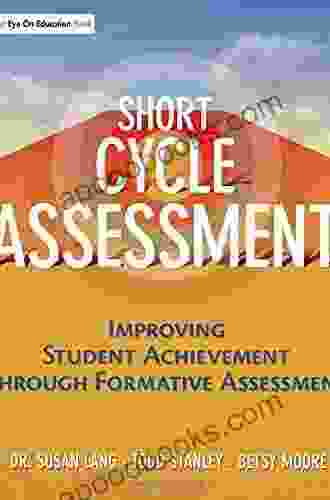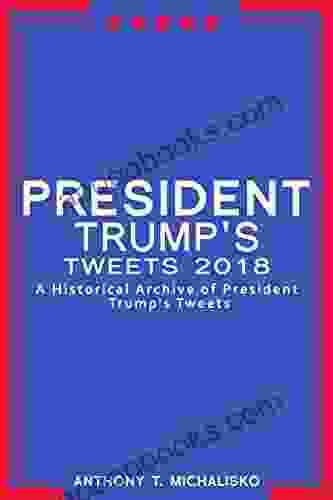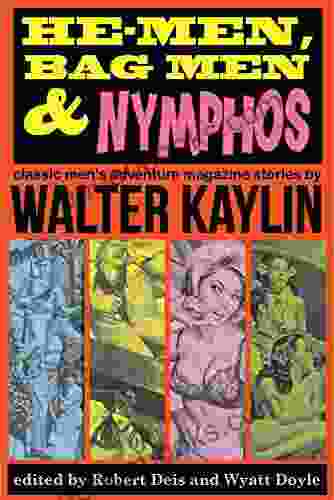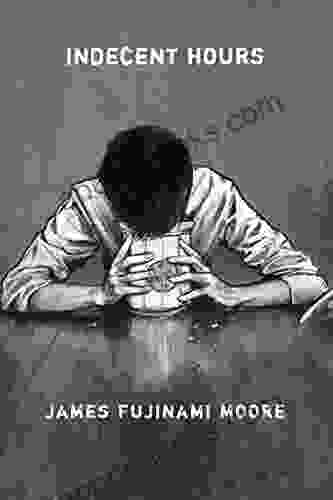Unlocking Student Success: A Comprehensive Guide to Formative Assessment

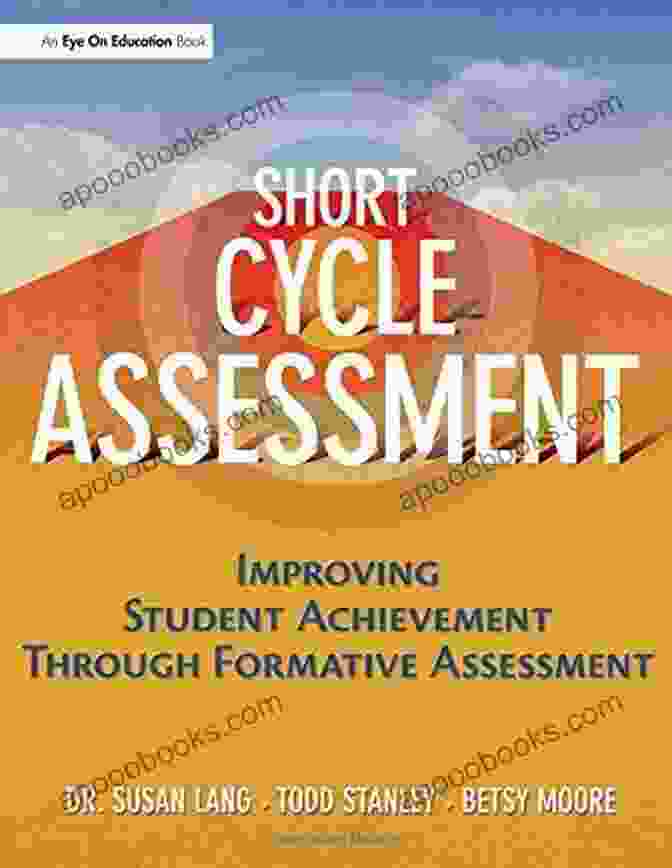
In the relentless pursuit of educational excellence, formative assessment stands out as an invaluable tool that empowers teachers to elevate student achievement. This comprehensive book, "Improving Student Achievement Through Formative Assessment," provides a roadmap for educators to harness the transformative power of formative assessment, bridging the gap between teaching and learning to cultivate a thriving classroom environment.
5 out of 5
| Language | : | English |
| File size | : | 2241 KB |
| Text-to-Speech | : | Enabled |
| Screen Reader | : | Supported |
| Enhanced typesetting | : | Enabled |
| Word Wise | : | Enabled |
| Print length | : | 194 pages |
Chapter 1: The Power of Formative Assessment
This introductory chapter sets the stage by defining formative assessment, emphasizing its critical role in enhancing student learning. It explores the benefits that formative assessment offers, empowering teachers to:
* Monitor student progress in real-time * Identify areas of struggle and provide timely interventions * Adjust teaching strategies to meet individual student needs * Empower students to become active participants in their learning journey
Chapter 2: Principles of Effective Formative Assessment
Building on the foundation laid in Chapter 1, this chapter delves deeper into the principles that underpin effective formative assessment. It outlines key characteristics, such as:
* Alignment with Learning Goals: Formative assessments should align directly with the intended learning objectives. * Regular and Frequent: Formative assessments should be conducted regularly throughout the learning process to track progress and provide ongoing feedback. * Varied and Engaging: Formative assessments should incorporate a range of methods to cater to different learning styles and preferences. * Actionable Feedback: Formative assessments should provide specific, timely, and actionable feedback that supports student growth.
Chapter 3: Types of Formative Assessment
This chapter presents a comprehensive overview of the various types of formative assessments, equipping educators with a diverse toolkit tailored to different learning scenarios. It covers:
* Informal Assessments: Quick and frequent assessments, such as observations, exit tickets, and student self-reflections. * Formal Assessments: More structured assessments, such as quizzes, tests, and portfolios, that provide summative data on student progress. * Authentic Assessments: Real-world tasks that assess students' abilities to apply their knowledge and skills in meaningful contexts.
Chapter 4: Implementing Formative Assessment in the Classroom
This practical chapter guides educators through the process of implementing formative assessment in their classrooms. It provides step-by-step instructions on:
* Planning for Formative Assessment: Identifying assessment goals, selecting appropriate methods, and creating assessment schedules. * Conducting Formative Assessment: Using effective questioning techniques, observing student work, and facilitating student self-assessment. * Analyzing and Interpreting Results: Gathering data, identifying patterns, and making informed decisions about instruction. * Providing Feedback: Communicating results to students in a constructive and actionable manner.
Chapter 5: Technology and Formative Assessment
In today's digital age, technology plays a crucial role in enhancing formative assessment. This chapter explores:
* Digital Assessment Tools: The use of online platforms, interactive simulations, and student response systems for formative assessment. * Data Analytics: Using technology to analyze assessment data, identify trends, and make data-driven decisions. * Student-Led Assessment: Empowering students to use technology to self-assess their learning and provide feedback to peers.
Chapter 6: Formative Assessment for Differentiated Instruction
Formative assessment is a cornerstone of differentiated instruction, helping educators tailor instruction to meet the individual needs of all learners. This chapter provides strategies for:
* Identifying Student Learning Styles: Using formative assessments to gather data on student learning preferences and adapting instruction accordingly. * Grouping Students: Creating flexible grouping strategies based on formative assessment data to provide targeted support and challenge. * Providing Tiered Assignments: Differentiating assignments based on student readiness, interest, and learning goals.
Chapter 7: Formative Assessment and Student Motivation
Formative assessment has a profound impact on student motivation by providing students with a clear understanding of their progress and areas for growth. This chapter explores:
* The Power of Feedback: How specific, timely, and actionable feedback can boost student confidence and motivation. * Self-Assessment and Goal Setting: Involving students in self-assessment and goal setting to empower them as active participants in their learning. * Creating a Positive Learning Environment: Using formative assessment to foster a classroom culture where mistakes are seen as opportunities for learning.
Chapter 8: Assessment and Grading
This chapter addresses the complex relationship between formative assessment and grading. It provides guidelines for:
* Using Formative Assessment Data for Grading: Incorporating formative assessment results into grading practices to provide a more accurate and meaningful assessment of student learning. * Using Formative Assessment to Reduce Grading Overload: Using formative assessments to identify areas where summative assessments are most needed, reducing grading workload. * Promoting Student Growth Over Grades: Emphasizing the importance of formative assessment in supporting student growth and progress, rather than solely focusing on letter grades.
"Improving Student Achievement Through Formative Assessment" concludes with a powerful synthesis of the key concepts covered throughout the book. It reiterates the transformative potential of formative assessment, emphasizing its ability to empower educators, motivate students, and ultimately drive academic success. The book concludes with a call to action, urging educators to embrace formative assessment as an indispensable tool in their teaching repertoire.
With its comprehensive content, practical strategies, and evidence-based research, this book is an essential resource for educators seeking to enhance their teaching practice and cultivate a thriving learning environment for all students. By harnessing the power of formative assessment, we can unlock the full potential of our learners and empower them to achieve their educational aspirations.
5 out of 5
| Language | : | English |
| File size | : | 2241 KB |
| Text-to-Speech | : | Enabled |
| Screen Reader | : | Supported |
| Enhanced typesetting | : | Enabled |
| Word Wise | : | Enabled |
| Print length | : | 194 pages |
Do you want to contribute by writing guest posts on this blog?
Please contact us and send us a resume of previous articles that you have written.
 Book
Book Novel
Novel Page
Page Chapter
Chapter Text
Text Story
Story Genre
Genre Reader
Reader Library
Library Paperback
Paperback E-book
E-book Magazine
Magazine Newspaper
Newspaper Paragraph
Paragraph Sentence
Sentence Bookmark
Bookmark Shelf
Shelf Glossary
Glossary Bibliography
Bibliography Foreword
Foreword Preface
Preface Synopsis
Synopsis Annotation
Annotation Footnote
Footnote Manuscript
Manuscript Scroll
Scroll Codex
Codex Tome
Tome Bestseller
Bestseller Classics
Classics Library card
Library card Narrative
Narrative Biography
Biography Autobiography
Autobiography Memoir
Memoir Reference
Reference Encyclopedia
Encyclopedia Scott S Barker
Scott S Barker William Temple
William Temple Juan Bautista Bergua
Juan Bautista Bergua Eric Lawrence Frazier
Eric Lawrence Frazier George Washington
George Washington Murphy Wallace
Murphy Wallace Shane Templeton
Shane Templeton Tobias Smollett
Tobias Smollett Thorsten Botz Bornstein
Thorsten Botz Bornstein Shelli Marie
Shelli Marie Shaun Attwood
Shaun Attwood Ron Clark
Ron Clark Tom Barker
Tom Barker Sara Kamali
Sara Kamali Roger Kamien
Roger Kamien Seana Kelly
Seana Kelly Jaimie Admans
Jaimie Admans Tanya Agathocleous
Tanya Agathocleous Suzanne Schneider
Suzanne Schneider Shudong Chen
Shudong Chen
Light bulbAdvertise smarter! Our strategic ad space ensures maximum exposure. Reserve your spot today!
 Winston HayesFollow ·10.9k
Winston HayesFollow ·10.9k Jeremy MitchellFollow ·5.3k
Jeremy MitchellFollow ·5.3k Eugene PowellFollow ·6.5k
Eugene PowellFollow ·6.5k Edward BellFollow ·8.8k
Edward BellFollow ·8.8k Hank MitchellFollow ·18.9k
Hank MitchellFollow ·18.9k Yukio MishimaFollow ·12.6k
Yukio MishimaFollow ·12.6k Mikhail BulgakovFollow ·4.3k
Mikhail BulgakovFollow ·4.3k Stephen FosterFollow ·19.4k
Stephen FosterFollow ·19.4k

 Harry Cook
Harry CookRape Blossoms and White Sky: A Floral Symphony of...
A Kaleidoscope of Colors...

 Vic Parker
Vic ParkerThe Passion of Jovita Fuentes: Unveiling the...
Immerse yourself in the...

 Cormac McCarthy
Cormac McCarthySinners and Saints: A Dark New Adult High School Bully...
Sinners and Saints is...
5 out of 5
| Language | : | English |
| File size | : | 2241 KB |
| Text-to-Speech | : | Enabled |
| Screen Reader | : | Supported |
| Enhanced typesetting | : | Enabled |
| Word Wise | : | Enabled |
| Print length | : | 194 pages |


